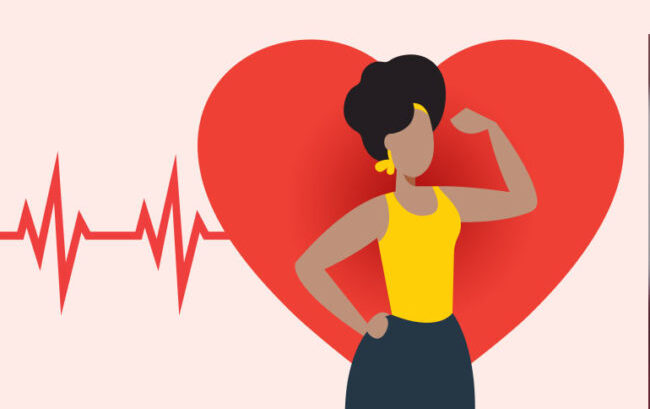Here’s to Your Heart Health
In recognition of American Heart Month in February, our primary care concierge doctors in Jupiter thought we’d share some facts with you about your heart, and what you can do to keep it healthy.
Surprising Heart Facts
First, from the Cleveland Clinic, here are a few interesting things you may not know about your heart.
Your heart is about the size of your two hands clasped together.
It beats 100,000 times a day.
The beating sound is the clap of valve leaflets opening and closing.
A woman’s average heartbeat is faster than a man’s by almost eight beats a minute.
Every cell in your body gets blood from your heart, except for your corneas.
The heart pumps blood through 60,000 miles of blood vessels.
A normal heart pumps approximately four tablespoons of blood with each beat.
Each minute, your heart pumps 1.5 gallons of blood.
Your heart has its own electrical supply and will continue to beat when separated from your body.
Heart cancer is very rare because heart cells stop dividing early in life.
About Heart Disease
Heart disease is the leading cause of death for men, women, and people of most racial and ethnic groups in the U.S. About 697,000 people in the U.S. died from heart disease in 2020 (the most recent figures available). And every year about 805,000 people in the U.S. have a heart attack; over 600,000 of those are first heart attacks.
According to the Centers for Disease Control and Prevention (CDC), the term “heart disease” refers to several types of heart conditions.
The most common type of heart disease in the U.S. is coronary artery disease (CAD), which affects blood flow to the heart. Decreased blood flow can cause a heart attack. In 2020, about 20 percent of deaths from CAD occurred in adults below the age of 65, known as an “early cardiac event.”
Common Symptoms of Heart Disease Include:
Heart attack: chest pain or discomfort, upper back or neck pain, pain in the jaw or throat, indigestion, heartburn, nausea or vomiting, extreme fatigue, upper body discomfort, dizziness, a cold sweat, and shortness of breath
Arrhythmia: fluttering feelings in the chest (palpitations)
Heart failure: shortness of breath, fatigue, or swelling of the feet, ankles, legs, abdomen, or neck veins
The Cleveland Clinic’s Dr. Curtis Rimmerman, a cardiologist, emphasizes that symptoms of a heart attack can vary widely, but adds that the discomfort is usually unrelenting, typically lasting five minutes or more.
“Regardless of where the pain is, people typically can’t find a position that relieves the pain,” he says. “Nor do they find relief by taking a drink of water, popping antacids or taking deep breaths.”
That means it’s time to call 911, he adds.
Increasing Risk
Unfortunately, about one in every five heart attacks are “silent”—that is, the damage is done, but the person is not aware of it.
That’s why it’s important to know your risk factors and what you can do about them.
About half of all Americans (47 percent) have at least one of the three key risk factors for heart disease: high blood pressure, high cholesterol, and smoking.
In addition, several other medical conditions and lifestyle choices also put people at a higher risk for heart disease, the CDC reports, including:
diabetes
overweight and obesity
unhealthy diet
physical inactivity
excessive alcohol use
In addition, a 2021 study published in the journal Heart found that those who used illicit substances, including amphetamines, cocaine, and cannabis, were far more likely to experience an early cardiac event than those who didn’t.
And another study, published in the Journal of the American Heart Association (AHA) in 2020, found that the chances of developing cardiovascular disease (CVD) were 19 times higher in women who consumed one or more sugary drinks a day. This included everything from fruit juices to soft drinks (not diet) to coffee with sugar.
Lowering Risk
Some risk factors cannot be controlled, such as age or family history of heart disease, but you can take steps to lower your risk by changing the factors you can control.
Have your blood pressure, cholesterol, and triglycerides checked regularly.
Ask us whether you should be tested for diabetes.
Quit smoking.
Limit the alcohol you consume to one drink a day.
Learn how to manage stress levels by finding healthy ways to cope with stressful events.
In addition, there are two other ways that have been shown to dramatically reduce your risk for heart disease.
The first is exercise. According to the Cleveland Clinic, regular moderate-intensity exercise for at least 150 minutes is the single most important—and free—key to heart health.
The second is diet, specifically a plant-based diet. This doesn’t necessarily mean going totally vegetarian, just making plant foods vs. animal foods the main component of your diet.
“I’ve seen people whose diabetes, angina, or blood pressure goes into remission [on a plant-based diet],” Andrew Freeman, a cardiologist and the co-founder of the Nutrition and Lifestyle Work Group at the American College of Cardiology, told The Washington Post.
“I’ve seen autoimmune diseases go away when you cut inflammation,” he said. “The best way to do that is with a plant-based diet, and people get better.”

